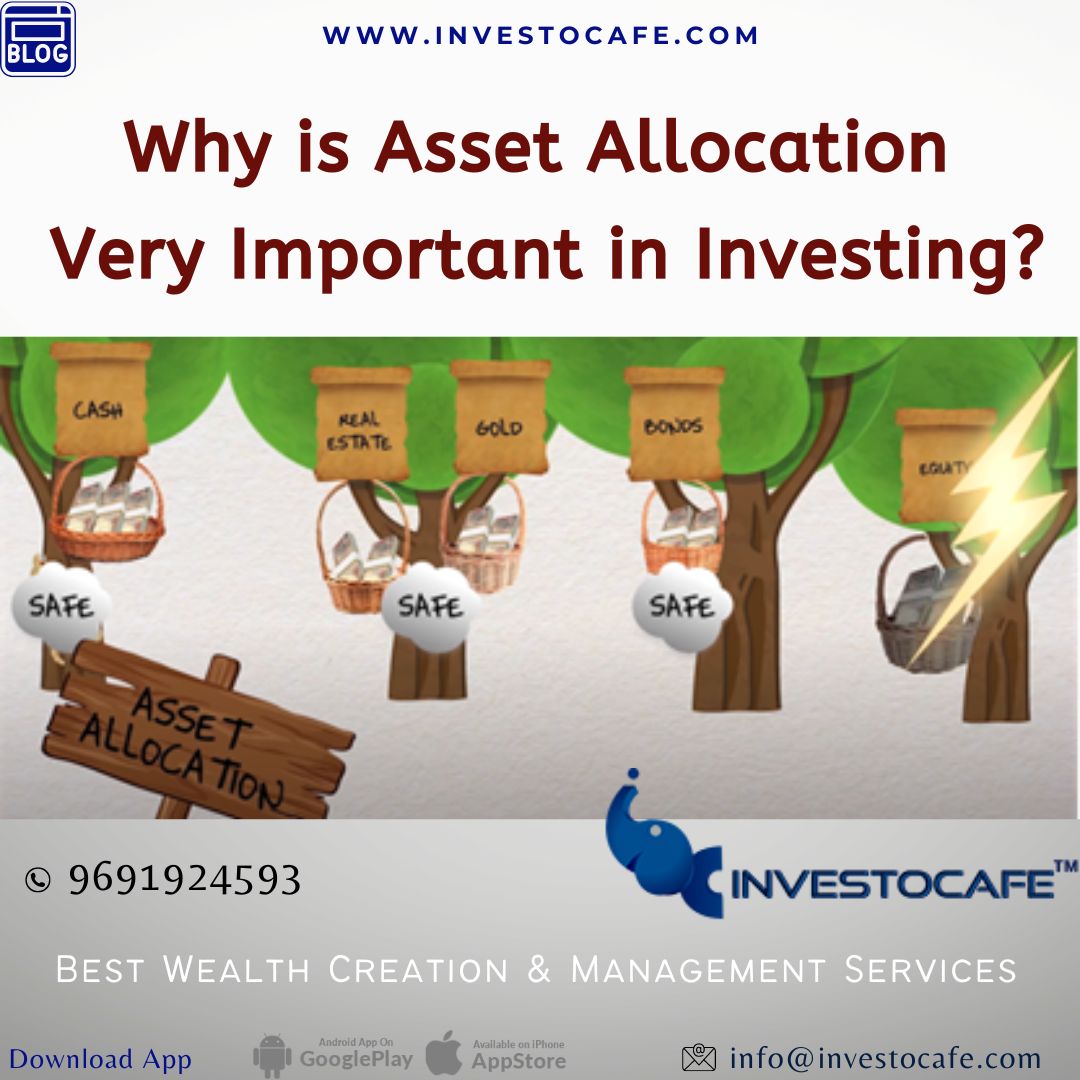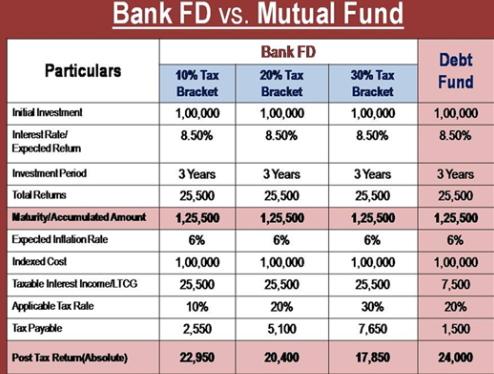
Why is Asset Allocation Very Important in Investing?
 Shruti Sharma -
Aug 18, 2022
Shruti Sharma -
Aug 18, 2022
By distributing an investment portfolio among several asset classes, including equity, fixed income, cash and cash equivalents, real estate, etc., asset allocation seeks to strike a balance between risk and reward. According to the theory, asset allocation enables investors to reduce the amount of risk that their portfolio is exposed to because each asset class has a unique association with other asset classes.
Importance of asset allocation
Different asset classes move in various ways. Rarely do all asset classes perform together. For example, while stocks are rising, gold investments may decline, and vice versa. As a result, spreading investments over a variety of asset types makes sense. By doing this, the underperformance of one group of asset classes or funds will be offset by the performance of the other asset classes. It can be exceedingly dangerous to invest all of one's money in a single asset class or mutual fund strategy. However, investors often generate superior returns if their capital is distributed over a variety of asset classes.
Factors that can affect asset allocation
Choosing the ideal asset mix for your portfolio is a very individual process. An investor's choice of asset allocation is influenced by a number of variables, including personal financial goals and objectives, risk tolerance, and investment horizon. Let's examine these elements.
Time horizon
The investor's time horizon is the number of months or years they anticipate investing to reach a specific objective. Risk tolerance varies with different investing horizons. For instance, given that slow economic cycles and high market volatility tend to subside over time, an investor with a long investment horizon may choose to invest in a portfolio with higher levels of risk.
Risk tolerance
An investor's willingness and capacity to lose some or all of their initial investment in the hope of higher potential returns is referred to as risk tolerance. Investors that are aggressive or who have a high risk tolerance are inclined to put most of their money at risk in order to receive better returns. Contrarily, risk-averse or cautious investors are more likely to invest in securities that protect their initial capital.
Risk vs returns
Risk and rewards are inextricably linked when it comes to investing. The adage "no pain, no gain" perfectly captures how risk and reward interact. Risk exists in all investments to some extent. Risk-taking is rewarded with greater possibility for better returns.
What are the different asset classes/categories?
Historically, there were 3 primary asset classes. However, most financial experts agree that there are 4 broad categories of asset classes. These are:
Fixed income: It is among the most liked and traditional types of investment alternatives. It consists of government and corporate bonds, money market instruments, and corporate debt securities, among other things. These instruments make investments in debt securities that provide investors with fixed interest payments up until the plan's maturity.
Equity: Shares of ownership that belong to publicly traded corporations are known as equity or stock. Equity has become very popular over the past ten years. Small-cap funds, mid-cap funds, large-cap funds, large and mid-cap funds, multi-cap funds, contra funds dividend, value funds, yield funds, sectoral funds, focused funds, and equity-linked savings schemes are other subcategories of equity funds (ELSS).
Cash and cash equivalents: These asset types, also referred to as money-market instruments, are assets that work well for short-term investing objectives. These instruments' liquidity is their main benefit. Treasury notes, commercial papers, money market funds, etc. are examples of extremely liquid cash equivalents that may typically be redeemed within 90 days. Investors can therefore easily access their money if it is placed in cash and cash equivalents.
Real estate: This kind of asset class concentrates on properties including plots, condos, villas, office space, industrial zones, etc. These investments' tangibility is a key feature that sets them apart from other securities, which only exist in virtual or dematerialized forms.
How asset allocation works?
Let's use an example to better understand how asset allocation functions. Consider a shop that sells just winter clothing, as a result, it generates a lot of revenue throughout the winter & typically does no business throughout the summer. The shop now makes the decision to broaden its selection of goods. They establish a department where they sell summer outfits too. The store now earns revenue in both the winter and the summer.
The company also decides to launch a number of categories where other things can be found, including umbrellas, books, food, furniture, and gadgets. The big department store, which was formerly only a little window shop, now has brisk year-round activity.
The store's entire business model previously depended on the winter and the idea that they wouldn't face any rivals then. However, the company is now able to operate with much less danger come rain or shine thanks to a department store that offers a wide variety of items year-round. Asset allocation, which aims to lower risks by distributing assets among diverse asset classes, is based on a similar concept.
With asset allocation, the concept of ‘one size fits all’ does not apply. Every individual’s financial condition is different and requires a unique and different approach. Remember, portfolios that have superior product selection and consistent asset allocation tend to outperform the market. If you are unsure about the optimal asset allocation to achieve your goals, you might consider seeking the services of Investocafe. Happy investing!
Book one free wealth management consultation with proper Asset Allocation with Investocafe’s certified advisor.
Contact Us @ 7224051610 or write at info@investocafe.com
To get in touch please visit us at investocafe.com














